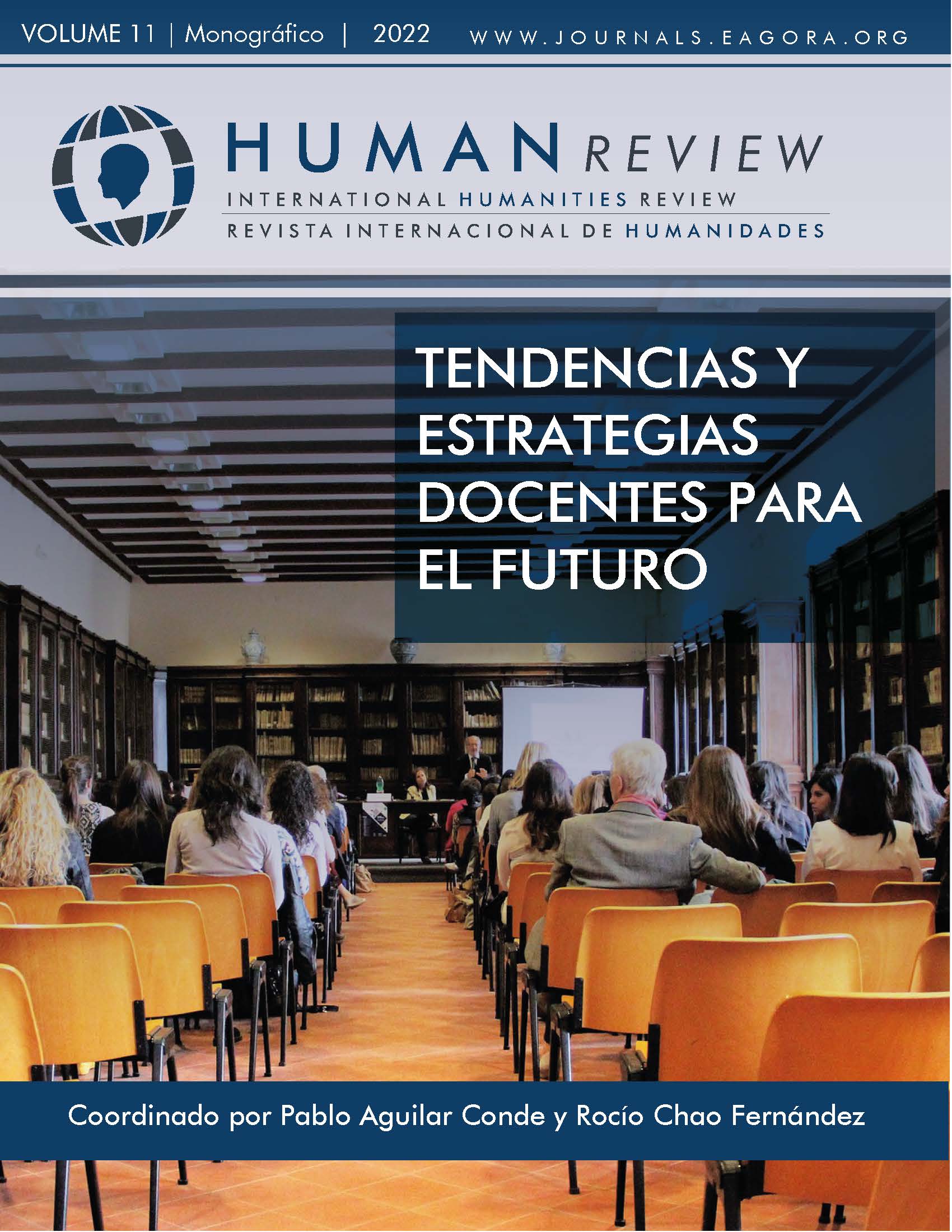The teaching of contemporary history through the carnival of Cadiz
Creative didactic application in a Secondary classroom
Keywords:
Carnival, Joke, Challenge, Critical Thinking, Self-Learning, Active Methodologies, Cooperative WorkAbstract
Our study promotes the use of carnival to learn Contemporary History and the use of active methodologies, such as student-focused teaching, which conceives learning as a constructive process. We understand learning as a process and not only as the mere act of receiving information. Active methodologies have become widespread in recent years, promoting the autonomy and participation of students. Likewise, learning must be contextualized in real-world situations and problems, close to the students. This promotes their positive attitude towards learning and boosts their motivation as something essential to foster critical thinking.
References
Ferreire, A. (1997). L´Autonomia dels escolars lárt de formar ciutadans per la nació y per a la humanitat. Editorial Eumo.
Garza, E. (2016). Aprendizaje Basado en Retos. 23 de febrero de 2018, de EduTrends Sitio web.
Gaskins, W. B., Johnson, J., Maltbie,C., & Kukreti, A. (2015). Changing the Learning Environment in the College of Engineering and Applied Science Using Challenge Based Learning. International Journal of Engineering Pedagogy (iJEP), 5(1), 33-41. Recuperado de: https://online-journals.org/index.php/i-jep/article/view/4138/3388
Johnson, L. F., Smith, R. S., Smythe, J. T., & Varon, R. K. (2009). Challenge- Based Learning: An Approach for Our Time. Recuperado de: http://rewiringeducation.com/wp-content/uploads/2018/02/Challenge-Based_Learning-An_Approach_for_Our_Time.pdf
Marchena Domínguez, J. (1994). Carnaval de Cádiz: Una historia de coplas. Cádiz: Fundación Gaditana del Carnaval y Ayuntamiento de Cádiz.
Oliva Benítez, E. (2020). El proyecto socio-educativo “Carnaval en la escuela”. La narrativa de uno de sus creadores. Hachetetepé. Revista científica De Educación Y Comunicación, (21), 84-94. https://doi.org/10.25267/Hachetetepe.2020.i21.8
Orden ECD/65/2015, de 21 de enero, por la que se describen las relaciones entre las competencias, los contenidos y los criterios de evaluación de la educación primaria, la educación secundaria obligatoria y el bachillerato.
Pérez García A. (2015). El sistema educativo español bajo la mirada creativa del carnaval de Cádiz. Creatividad y Sociedad (24) 32-63.
Pérez García, A. & Sacaluga, I. (2017). El carnaval de Cádiz: de la calle al aula. Un ejemplo de proyecto didáctico. El Carnaval de Cádiz: de las coplas a la industria cultural 15-184.Editorial UCA
Quintero, E. (2015) Aprendizaje Basado en Retos Parte 1. Edutrens. Recuperado de https://www.youtube.com/watch?v=KZWzBFO1xPQ
Real Decreto 1105/2014, del 26 de diciembre, por el que se establece el currículo básico de la Educación Secundaria y bachillerato.
Sacaluga Rodríguez, I. & Pérez García, A. (2017). Medios audiovisuales y Carnaval de Cádiz: una combinación útil como recurso didáctico. Aula de Encuentro, no 19 (2), pp. 170-193. doi: https://dx.doi.org/10.17561/ae.v19i2.7
Sacaluga Rodríguez, I. & Pérez García, A. (coords.) (2017). El Carnaval de Cádiz: de las coplas a la industria cultural. Cádiz: Servicio de Publicaciones de la Universidad de Cádiz.
Downloads
Published
Issue
Section
License
All articles are published under an Attribution-NoDerivatives 4.0 International (CC BY-ND 4.0) license. Authors retain copyright over their work.

